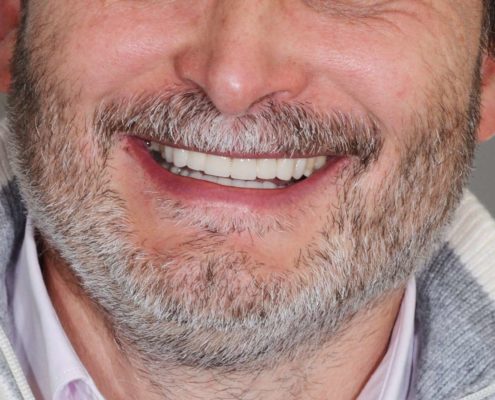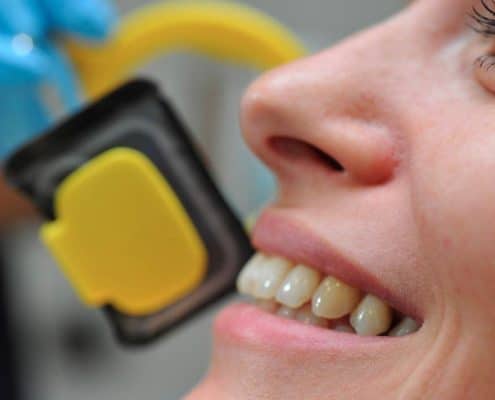What is severe bruxism?
Affecting 10-15% of adults and about twice as many children, severe bruxism is characterized by involuntary grinding or clenching of the jaw. In adults, it usually occurs at night, but younger children may grind their teeth throughout the day without realizing it. Severe bruxism occurs when it’s repeated every day, over a long period of time, and has a significant impact on health.
What causes bruxism?
Tooth grinding can be induced by a number of different factors. For most people, the causes of bruxism are psychological: stress, anxiety or overwork are responsible for two-thirds of cases. But the phenomenon of “grinding teeth” can have other origins, such as misalignment of the jaws, heavy consumption of stimulants, alcohol or tobacco, taking medication that causes the jaws to contract, sleep apnea…
What are the consequences of chronic teeth grinding?
Mechanically, chronic bruxism leads to premature wear of tooth enamel. This can affect not only the chewing surface, but also the tooth structure, sometimes even causing fracture when the pressure is too great. Severe teeth grinding, on the other hand, can cause a host of symptoms of varying degrees of discomfort:
- Dental hypersensitivity ;
- Jaw and neck pain;
- Tension in the muscles and joints of the upper body;
- Headaches, neuralgia and back pain;
- Sleep disorders, chronic fatigue and depression;
- Digestive problems…
Finally, when the teeth are badly damaged, the sufferer may feel uneasy about the appearance of his or her smile. Social life is then affected.
How to get rid of bruxism
The first phase consists of eliminating the symptoms of bruxism, in order to restore restful sleep and a better quality of life. The most common treatment is to wear an anti-bruxism mouthpiece for several hours a day, usually at night in adults. The aim is to relax the jaw joint and prevent the upper and lower teeth from rubbing against each other. By putting an end to teeth grinding, the mouthpiece also gradually relieves associated pain. As a result, you’ll be able to return to everyday comfort. The second phase of treatment for severe bruxism involves restoring your smile. Studio Dentaire, a cosmetic dentistry practice in Lyon, specializes in the fitting of veneers, inlays, onlays or overlays, depending on the degree of damage to your teeth. Following a dental check-up, your dentist takes the impressions required to create a mouthpiece. He then draws up an action plan to correct the defects caused by bruxism. The various devices enable damaged or missing parts of the teeth to be masked in a natural, long-lasting way. Would you like to find out more about bruxism? Contact Studio Dentaire in Lyon.





